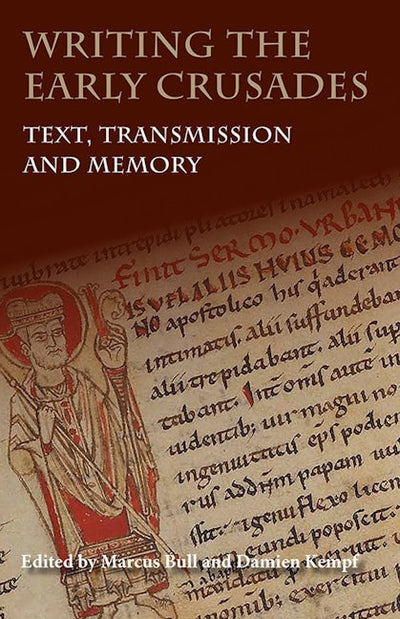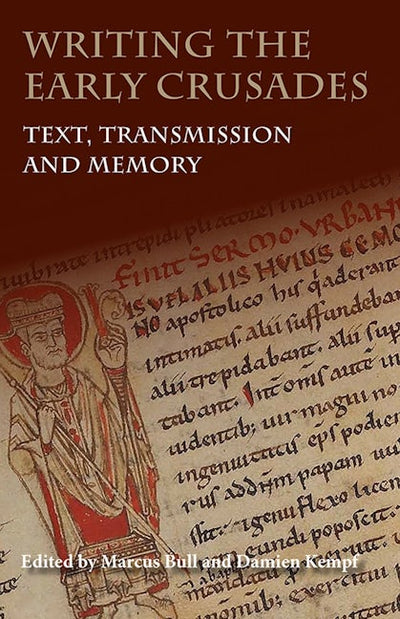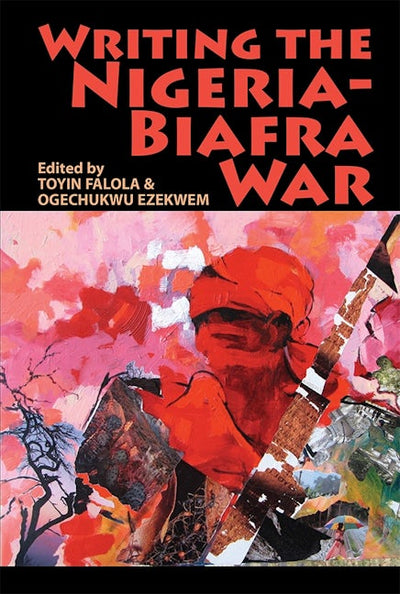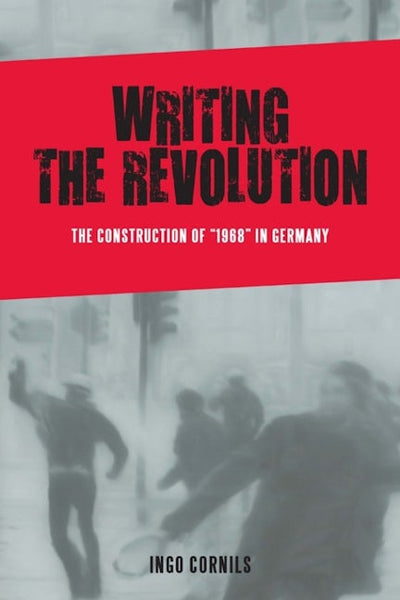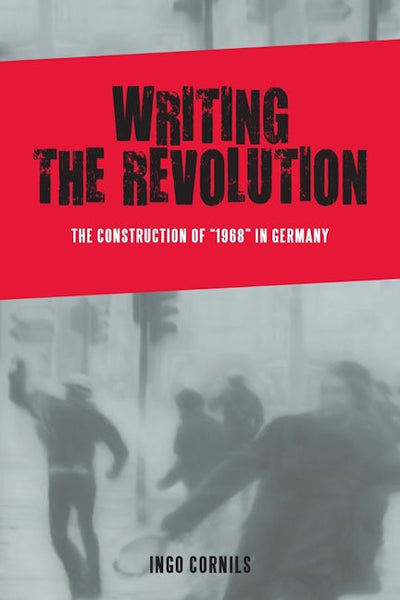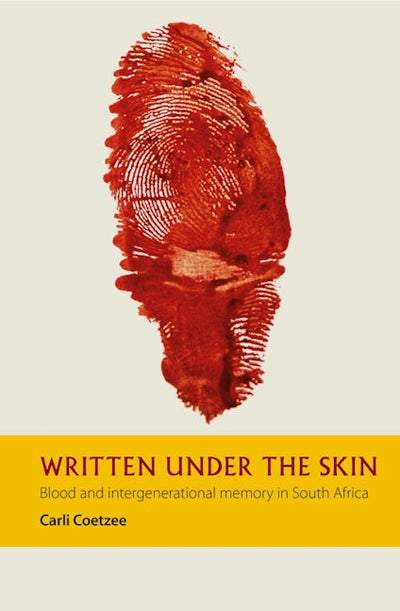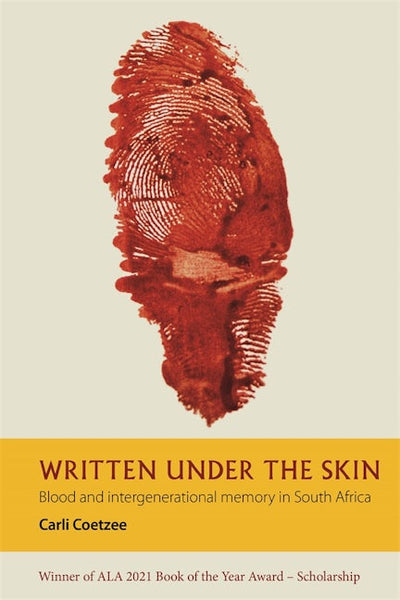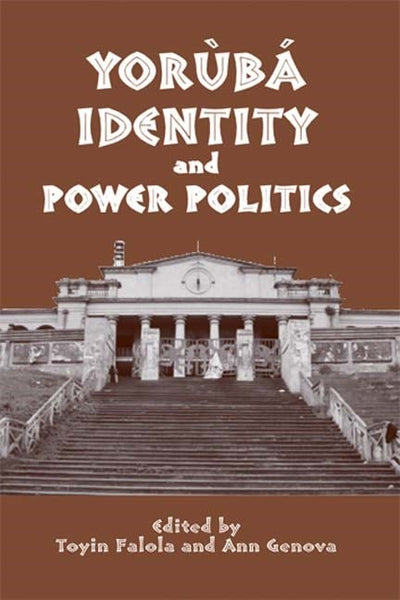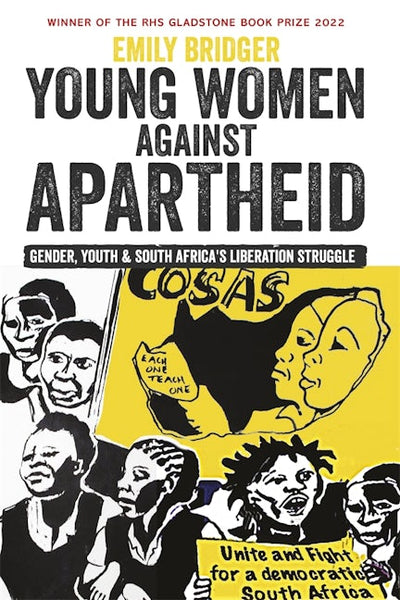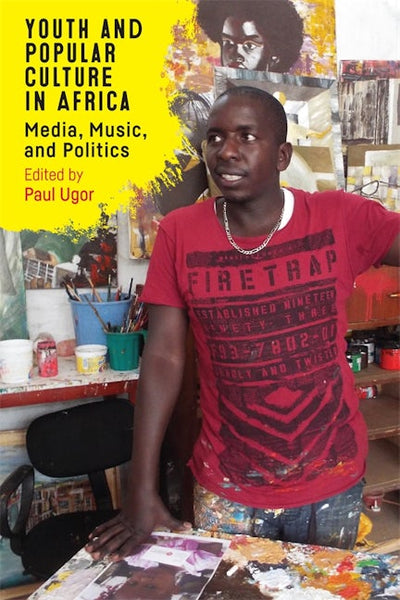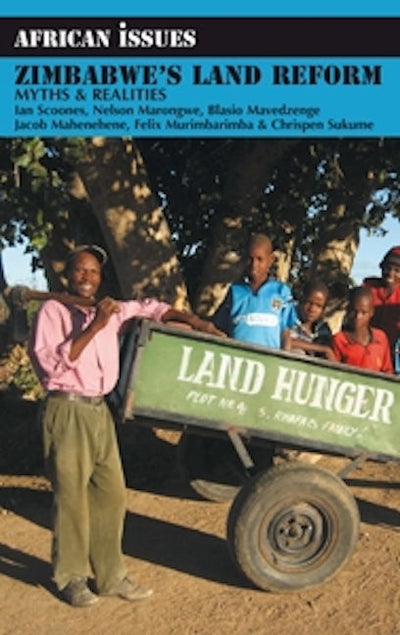-
Antiques & Collectibles
-
Architecture
-
Art
-
Bibles
-
Biography & Autobiography
-
Body, Mind & Spirit
-
Business & Economics
-
Comics & Graphic Novels
-
Computers
-
Cooking
-
Crafts & Hobbies
-
Design
-
Education
-
Family & Relationship
-
Fiction
-
Foreign Language Study
-
Games & Activities
-
Gardening
-
Health & Fitness
-
History
-
House & Home
-
Humor
-
Juvenile Fiction
-
Juvenile Nonfiction
-
Language Arts & Disciplines
-
Law
-
Literary Collections
-
Literary Criticism
-
Mathematics
-
Medical
-
Miscellaneous
-
Music
-
Nature
-
Performing Arts
-
Pets
-
Philosophy
-
Photography
-
Poetry
-
Political Science
-
Psychology
-
Reference
-
Religion
-
Self-Help
-
Science
-
Social Science
-
Sports & Recreation
-
Study Aids
-
Technology & Engineering
-
Transportation
-
Travel
-
True Crime
-
Young Adult Fiction
-
Young Adult Nonfiction
-
Antiques & Collectibles
-
Architecture
-
Art
-
Bibles
-
Biography & Autobiography
-
Body, Mind & Spirit
-
Business & Economics
-
Comics & Graphic Novels
-
Computers
-
Cooking
-
Crafts & Hobbies
-
Design
-
Education
-
Family & Relationship
-
Fiction
-
Foreign Language Study
-
Games & Activities
-
Gardening
-
Health & Fitness
-
History
-
House & Home
-
Humor
-
Juvenile Fiction
-
Juvenile Nonfiction
-
Language Arts & Disciplines
-
Law
-
Literary Collections
-
Literary Criticism
-
Mathematics
-
Medical
-
Miscellaneous
-
Music
-
Nature
-
Performing Arts
-
Pets
-
Philosophy
-
Photography
-
Poetry
-
Political Science
-
Psychology
-
Reference
-
Religion
-
Self-Help
-
Science
-
Social Science
-
Sports & Recreation
-
Study Aids
-
Technology & Engineering
-
Transportation
-
Travel
-
True Crime
-
Young Adult Fiction
-
Young Adult Nonfiction
Writing the Early Crusades
Regular price $29.99 Save $-29.99The First Crusade (1095-1101) was the stimulus for a substantial boom in Western historical writing in the first decades of the twelfth century, beginning with the so-called "eyewitness" accounts of the crusade and extending to numerous second-hand treatments in prose and verse. From the time when many of these accounts were first assembled in printed form by Jacques Bongars in the early seventeenth century, and even more so since their collective appearance in the great nineteenth-century compendium of crusade texts, the Recueil des historiens des croisades, narrative histories have come to be regarded as the single most important resource for the academic study of the early crusade movement. But our understanding of these texts is still far from satisfactory.
This ground-breaking volume draws together the work of an international team of scholars. It tackles the disjuncture between the study of the crusades and the study of medieval history-writing, setting the agenda for future research into historical narratives about or inspired by crusading. The basic premise that informs all the papers is that narrative accounts of crusades and analogous texts should not be primarily understood as repositories of data that contribute to a reconstruction of events, but as cultural artefacts that can be interrogated from a wide range of theoretical, methodological and thematic perspectives.
MARCUS BULL is Andrew W Mellon Distinguished Professor of Medieval and Early Modern Studies at the University of North Carolina at Chapel Hill; DAMIEN KEMPF is Senior Lecturer in Medieval History at the University of Liverpool.
Contributors: Laura Ashe, Steven Biddlecombe, Marcus Bull, Peter Frankopan, Damian Kempf, James Naus, Léan Ní Chléirigh, Nicholas Paul, William J. Purkis, Luigi Russo, Jay Rubenstein, Carol Sweetenham,

Writing the Early Crusades
Regular price $95.00 Save $-95.00The First Crusade (1095-1101) was the stimulus for a substantial boom in Western historical writing in the first decades of the twelfth century, beginning with the so-called "eyewitness" accounts of the crusade and extending to numerous second-hand treatments in prose and verse. From the time when many of these accounts were first assembled in printed form by Jacques Bongars in the early seventeenth century, and even more so since their collective appearance in the great nineteenth-century compendium of crusade texts, the Recueil des historiens des croisades, narrative histories have come to be regarded as the single most important resource for the academic study of the early crusade movement. But our understanding of these texts is still far from satisfactory.
This ground-breaking volume draws together the work of an international team of scholars. It tackles the disjuncture between the study of the crusades and the study of medieval history-writing, setting the agenda for future research into historical narratives about or inspired by crusading. The basic premise that informs all the papers is that narrative accounts of crusades and analogous texts should not be primarily understood as repositories of data that contribute to a reconstruction of events, but as cultural artefacts that can be interrogated from a wide range of theoretical, methodological and thematic perspectives.
MARCUS BULL is Andrew W. Mellon Distinguished Professor of Medieval and Early Modern Studies at the University of North Carolina at Chapel Hill; DAMIEN KEMPF is Senior Lecturer in Medieval History at the University of Liverpool.
Contributors: Laura Ashe, Steven Biddlecombe, Marcus Bull, Peter Frankopan, Damian Kempf, James Naus, Léan Ní Chléirigh, Nicholas Paul, William J. Purkis, Luigi Russo, Jay Rubenstein, Carol Sweetenham,

Writing the Jerusalem Pilgrimage in the Late Middle Ages
Regular price $120.00 Save $-120.00What do the bursar of Eton College, a canon of Mainz Cathedral, a young knight from near Cologne, and a Kentish nobleman's chaplain have in common? Two Germans, residents of the Holy Roman Empire, and two Englishmen, just as the western horizons of the known world were beginning to expand. These four men - William Wey, Bernhard von Breydenbach, Arnold von Harff, and Thomas Larke - are amongst the thousands of western Christians who undertook the arduous journey to the Holy Land in the decades immediately before the Reformation. More importantly, they are members of a much more select group: those who left written accounts of their travels, for the journey to Jerusalem in the late Middle Ages took place not only in the physical world, but also in the mind and on the page. Pilgrim authors contended in different ways with the collision between fifteenth-century reality and the static textual Jerusalem, as they encountered the genuinely multi-religious Middle East.
This book examines the international literary phenomenon of the Jerusalem pilgrimage through the prism of these four writers. It explores the process of collective and individual identity construction, as pilgrims came into contact with members of other religious traditions in the course of the expression of their own; engages with the uneasy relationship between curiosity and pilgrimage; and investigates both the relevance of genre and the advent of print to the development of pilgrimage writing. Ultimately pilgrimage is revealed as a conceptual space with a near-liturgical status, unrestricted by geographical boundaries and accessible both literally and virtually.

Writing the New Berlin
Regular price $29.99 Save $-29.99The wall was still coming down when critics began to call for the great Berlin novel that could explain what was happening to Germany and the Germans. Such a novel never appeared. Instead, writers have created a patchwork imaginary -- in the form of about 300 works of fiction set in Berlin -- of a city and a nation whose identity collapsed virtually overnight. Contributors to this literary collage include established writers like Peter Schneider and Christa Wolf, young authors like Tanja Dückers and Ingo Schramm, German-Turkish authors Zafer Senocak and Yadé Kara, and the Austrians Kathrin Röggla and Marlene Streeruwitz. The non-arrival of the great Berlin novel marks the reorientation in German culture and literature that is the focus of this study: the experience of unification was too diverse, too postmodern, too influenced by global developments to be captured by one novel. Berlin literature of the postunification decade is marked by ambiguity: change is linked to questions of historical continuity; postmodern simulation finds its counterpart in a quest for authenticity; and the assimilation of Germanness into European and global contexts is both liberation and loss. This book pursues a nuanced understanding of the search for new ways to tell the story of Germany's past and of its importance for the formation of a new German identity.
Katharina Gerstenberger is Professor of German at the University of Cincinnati.

Writing the Nigeria-Biafra War
Regular price $190.00 Save $-190.00The Nigeria-Biafra War lasted from 6 July 1966 to 15 January 1970, during which time the post-colonial Nigerian state fought to bring the South-Eastern region, which had seceded as the State or Republic of Biafra, back into the newly independent but ideologically divided nation. This volume discusses the trends and methodologies in the civil war writings, both fictional and non-fictional, and is the first to analyse in detail the intellectual and historical circumstances that helped to shape these often contentious texts.
The recent high-profile fictional account by Chimamanda Ngozi Adichie in Half of a Yellow Sun was preceded by works by Ken Saro-Wiwa, Elechi Amadi, Kole Omotoso, Wole Soyinka, Flora Nwapa, Buchi Emecheta, Chukwuemeka Ike and Chris Abani, all of which strongly convey the horrific human cost of the war on individuals and their communities. The non-fictional accounts, including Chinua Achebe's last work There Was a Country, are biographies, personal accounts and essays on the causes and course of the war, its humanitarian crises and the collaboration of foreign nations. The contributors examine writers' and protagonists' use of contemporary published texts as a means of continued resistance and justification of the war, the problems of objectivity encountered in memoirs, and how authors' backgrounds and sources determine thekinds of biases that influenced their interpretations, including the gendered divisions in Nigeria-Biafra War scholarship and sources. By initiating a dialogue on the civil war literature, this volume engages a much-needed discourse on the problems confronting a culturally diverse post-war Nigeria.
Toyin Falola is the Jacob and Frances Sanger Mossiker Chair in the Humanities and University Distinguished Teaching Professor at the University ofTexas at Austin; Ogechukwu Ezekwem is a PhD student in the Department of History, University of Texas at Austin.

Writing the Revolution
Regular price $36.95 Save $-36.95In Germany, the concept of "1968" is enduring and synonymous with the German Student Movement, and is viewed, variously, as a fundamental liberalization, a myth, a second foundation, or an irritation. The movement's aims - radicalre-imagination of the political and economic order and social hierarchy - have been understood as requiring a "long march." While the movement has been judged at best a "successful failure," cultural elites continue to engage inthe construction of 1968. Ingo Cornils's book argues that writing about 1968 in Germany is no longer about the historical events or the specific objectives of a bygone counterculture, but is instead a moral touchstone, a marker ofsocial group identity meant to keep alive (or at bay) a utopian agenda that continues to fire the imagination. The book demonstrates that the representation of 1968 as a "foundational myth" suits the needs of a number of surprisingly heterogeneous groups, and that even attempts to deconstruct the myth strengthen it. Cornils brings together for the first time the historical, literary, and media representations of the movement, showing the motivation behindand effect of almost five decades of writing about 1968. In so doing, Cornils challenges the way 1968 has been instrumentalized: as a powerful imaginary that has colonized every aspect of life in Germany, and as symbolic capitalin cultural and political debates.
Ingo Cornils is Professor of German Studies at the University of Leeds.

Writing the Revolution
Regular price $130.00 Save $-130.00In Germany, the concept of "1968" is enduring and synonymous with the German Student Movement, and is viewed, variously, as a fundamental liberalization, a myth, a second foundation, or an irritation. The movement's aims - radicalre-imagination of the political and economic order and social hierarchy - have been understood as requiring a "long march." While the movement has been judged at best a "successful failure," cultural elites continue to engage inthe construction of 1968. Ingo Cornils's book argues that writing about 1968 in Germany is no longer about the historical events or the specific objectives of a bygone counterculture, but is instead a moral touchstone, a marker ofsocial group identity meant to keep alive (or at bay) a utopian agenda that continues to fire the imagination. The book demonstrates that the representation of 1968 as a "foundational myth" suits the needs of a number of surprisingly heterogeneous groups, and that even attempts to deconstruct the myth strengthen it. Cornils brings together for the first time the historical, literary, and media representations of the movement, showing the motivation behindand effect of almost five decades of writing about 1968. In so doing, Cornils challenges the way 1968 has been instrumentalized: as a powerful imaginary that has colonized every aspect of life in Germany, and as symbolic capitalin cultural and political debates.
Ingo Cornils is Professor of German Studies at the University of Leeds.

Writing the Self, Creating Community
Regular price $130.00 Save $-130.00Beginning in the 1770s, the German literary market experienced unprecedented growth. The enormous demand for reading materials that stimulated this burgeoning market created new opportunities for women writers. At the same time, they still faced numerous obstacles. The new opportunities and limitations imposed on women writers are the subject of this book. The eleven essays contained within look beyond the negative strategies women writers employed, such as hiding their intellectual accomplishments or legitimizing their works by subordinating them to non-artistic purposes. Instead, they ask how women wrote about their own creative processes both directly, for example, by sketchinga female poetology, and indirectly, through literary representations of female authorship. This volume examines concepts of female authorship as they are presented in women's correspondence, theoretical statements, and literary works. The contributors bring to life the collaborative literary world of female writers through explorations of familial and professional mentorships, salons, writing circles, and their correspondences. They consider how female authors positioned themselves within contemporary intellectual discourses and analyze the tropes that shaped ideas about their authorship throughout the emerging literary marketplace of eighteenth century Europe.
Contributors: Karin Baumgartner, Margaretmary Daley, Ruth P. Dawson, Denise M. Della Rossa, Renata Fuchs, Amy Jones, Julie L. J. Koehler, Elisabeth Krimmer, Sara Luly, Monika Nenon, Lauren Nossett, Angela Sanmann.
Elisabeth Krimmer is Professor of German at the University of California, Davis, and Lauren Nossett is Visiting Assistant Professor of German at Randolph-Macon College.

Writing to Change the World
Regular price $120.00 Save $-120.00In the twentieth century, leftist authors around the world understood their writing as an act of solidarity, but their common project was obscured by the end of the Cold War and the dismantling of socialist states. This book begins to recover the global history of solidarity as a principle of authorship, taking Anna Seghers (1900-1983), one of the most important German writers of her time, as an exemplar. Like other leftist authors in other languages and contexts, Seghers emphasized how people are implicated in global economic inequality and efforts to change it. Writing to Change the World introduces Seghers's concept of solidarian authorship by telling the story of an award, still in existence today, that she bequeathed to support East German and Latin American authors. The book then follows the history of the idea by reading Seghers alongside prominent contemporaries: the German playwright and poet Bertolt Brecht in the 1930s, the Cuban novelist Alejo Carpentier in the 1960s, and the Indian scholar and theorist Gayatri Chakravorty Spivak in the 1980s. These writers thematized and critiqued solidarity, often by depicting characters who forge connections across borders. In doing so, they also commented on the literary institutions that fostered their own work. Providing new evidence for Seghers's global relevance beyond German literature, Writingto Change the World argues for the continued significance of solidarity both as a model of global authorship and as a framework for analysis of world literature. In doing so, it refocuses attention on global structures of inequality and collective imaginings of a better world.
Marike Janzen is Assistant Professor of Humanities and Courtesy Assistant Professor of Germanic Languages and Literatures at the University of Kansas.

Writing Wrongdoing in Spain, 1800-1936
Regular price $130.00 Save $-130.00The international contributors to this volume explore the rich diversity of cultures and representations of wrongdoing in Spain through the 19th century and the decades up to the Civil War. Their line of enquiry is predicated on the belief that cultural constructions of wrongdoing are far from simple reflections of historical or social realities, and that they reveal not a line of historical development, but rather variation and movement. Voices and discourses arise in response to the social phenomena associated with wrongdoing. They set out to persuade, to shock, to entice, and in so doing provide complex windows on to social aspiration and desire. The book's three sections (Realities, Representations, and Reactions) offer distinct points of focus, and move between areas where control is paramount and on the agenda from above and those where the subtleties of emotional response take pride of place.
Alison Sinclair was Professor of Modern Spanish Literature and Intellectual History at the University of Cambridge until retirement in 2014.
Samuel Llano is a Lecturer in Spanish Cultural Studies at the Universityof Manchester.

Written under the Skin
Regular price $95.00 Save $-95.00The author uses the image of blood under the skin as a way of understanding cultural and literary forms in contemporary South Africa. Chapters deal with the bloodied histories of apartheid and blood as trope for talking about change.
In this book the author argues that a younger generation of South Africans is developing important and innovative ways of understanding South African pasts, and that challenge the narratives that have over the last decades been informed by notions of forgiveness and reconciliation. The author uses the image of history-rich blood to explore these approaches to intergenerational memory. Blood under the skin is a carrier of embodied and gendered histories andusing this image, the chapters revisit older archives, as well as analyse contemporary South African cultural and literary forms.
The emphasis on blood challenges the privileged status skin has had as explanatory category inthinking about identity, and instead emphasises intergenerational transfer and continuity. The argument is that a younger generation is disputing and debating the terms through which to understand contemporary South Africa, as well as for interpreting the legacies of the past that remain under the visible layer of skin. The chapters each concern blood: Mandela's prison cell as laboratory for producing bloodless freedom; the kinship relations created and resisted in accounts of Eugene de Kock in prison; Ruth First's concern with information leaks in her accounts of her time in prison; the first human-to-human heart transplant and its relation to racialised attempts to salvage whiteidentity; the #Fallist moment; Abantu book festival; and activist scholarship and creative art works that use blood as trope for thinking about change and continuity.
Southern Africa (South Africa, Namibia, Lesotho, Zimbabwe and Swaziland): Wits University Press

Written under the Skin
Regular price $24.99 Save $-24.99The author uses the image of blood under the skin as a way of understanding cultural and literary forms in contemporary South Africa. Chapters deal with the bloodied histories of apartheid and blood as trope for talking about change.
In this book the author argues that a younger generation of South Africans is developing important and innovative ways of understanding South African pasts, and that challenge the narratives that have over the last decades been informed by notions of forgiveness and reconciliation. The author uses the image of history-rich blood to explore these approaches to intergenerational memory. Blood under the skin is a carrier of embodied and gendered histories andusing this image, the chapters revisit older archives, as well as analyse contemporary South African cultural and literary forms.
The emphasis on blood challenges the privileged status skin has had as explanatory category inthinking about identity, and instead emphasises intergenerational transfer and continuity. The argument is that a younger generation is disputing and debating the terms through which to understand contemporary South Africa, as well as for interpreting the legacies of the past that remain under the visible layer of skin. The chapters each concern blood: Mandela's prison cell as laboratory for producing bloodless freedom; the kinship relations created and resisted in accounts of Eugene de Kock in prison; Ruth First's concern with information leaks in her accounts of her time in prison; the first human-to-human heart transplant and its relation to racialised attempts to salvage whiteidentity; the #Fallist moment; Abantu book festival; and activist scholarship and creative art works that use blood as trope for thinking about change and continuity.
Southern Africa (South Africa, Namibia, Lesotho, Zimbabwe and Swaziland): Wits University Press

Wulfstan's Canon Law Collection
Regular price $120.00 Save $-120.00This volume presents the first edited version of the canon collection associated with two of the key literary figures of the late Anglo-Saxon period: Ælfric, abbot of Eynsham [d. after 1006], and Wulfstan, bishop ofWorcester and archbishop of York [d. 1023]. Although of considerable importance, its textual problems (how many items comprise the collection? When, and by whom, was it composed?) have made proper critical study difficult. This edition aims to answer the need; the texts of the two recensions are edited with full critical apparatus of the five known manuscripts, a detailed study of sources, facing English translation, and an introductory essay on the text and its background.
Dr ANDREW HAMER teaches at the University of Liverpool.

Wunderkind
Regular price $90.00 Save $-90.00The critical reception of Carson McCullers, author of The Heart Is aLonely Hunter, The Member of the Wedding, and The Ballad of theSad Café has reflected the prevailing cultural preoccupations of thefive decades since the publication of her first novel in 1940. Jamesdistinguishes between pre and post-war criticism and furtheridentifies other critical approaches - that of New Criticism which sawher work as working in the shadow of Faulkner; the response to thepsychological and social rhythms of her fiction; and the recognition ofthe interplay of gender, race, and class in her life, and her texts.

Wyatt Abroad
Regular price $130.00 Save $-130.00During the 1520s and 1530s Sir Thomas Wyatt, the poet and diplomat, composed a number of translations and adaptations of European poetry (including the Penitential Psalms and works by Petrarch) when he was in embassy, or when he was engaged in other forms of international negotiations.This volume presents a comparative analysis of those poems which were directly or indirectly shaped by his ambassadorial experience. By examining the key points of divergencefrom and adaptation of his Italian, Latin and French sources and analogues, the author identifes the specific ways in which Wyatt reformed those sources in order to comment upon the lability of Tudor diplomacy and the political machinations at home and abroad which informed it - as well as the personal cost to Wyatt himself. The volume also identifies Wyatt's innovations and his debts, so redressing earlier interpretations of Wyatt's work which ignored its translative ontology. Through noting Wyatt's specific alterations and ameliorations, it allows a clearer image of his poetics to develop.
Dr William T. Rossiter is Senior Lecturer in Medieval and Early Modern EnglishLiterature at the University of East Anglia.

Xhosa literature
Regular price $170.00 Save $-170.00Xhosa Literature: Spoken and Printed Words consists of fourteen essays addressing Xhosa literature in three media - the spoken word, newspapers and books. Literary critics tend to focus on Xhosa literature published in books; some attention has been paid to Xhosa oral poetry and tales, but by and large the contribution of newspapers to the development of Xhosa literature has been overlooked. This book explores aspects of Xhosa literature in all three media, and their interconnections.
Six of the essays treat historical narratives (amabali) and praise poetry (izibongo), setting out the social and ritual function of poetry and the poet (imbongi), mapping changes in the izibongo of three poets as South Africa moved towards democracy in the 1990s, and analysing recordings of two poems recited by S.E.K. Mqhayi. Three essays are devoted to the first Xhosa novel, Mqhayi's U-Samson (1907), to the publication of the greatest novel in Xhosa, A.C. Jordan's Ingqumbo yeminyanya (1940), and to the first published poem in praise of Nelson Mandela, D.L.P. Yali-Manisi's 'UNkosi Rolihlahla Nelson Mandela' (1954). There follow accounts of Xhosa literature in the nineteenth century and the appropriation of the press by Xhosa editors towards the end of that century, of Nontsizi Mgqwetho's fiery poetry published in Umteteli wa Bantu and of poems by Mgqwetho and Mqhayi published in Abantu-Batho, two Johannesburg newspapers. The volume concludes with an exposition of an imaginative response to David Yali-Manisi and his poetry.
University of KwaZulu-Natal Press: Southern African Development Community

Xhosa Poets and Poetry
Regular price $190.00 Save $-190.00The Xhosa-speaking peoples who settled along the south-eastern seaboard of South Africa promoted traditions of praise poetry (izibongo), poetry produced orally by men and women, adults and children, about people, clans, ancestors and animals. Throughout the nineteenth century, authors who used the Xhosa language gradually developed the craft of composing poetry for publication in newspapers, and expanded this process in the twentieth century, when books containing secular literature appeared, but the practice of oral poetry persists, flourishing now as it did before the incursion of colonial settlers. The dominant poet in the community is the imbongi, who continues to produce poetry praising or criticising figures of authority on occasions of local and national significance.
Xhosa Poets and Poetry (Iimbongi nezibongo) contains fourteen essays originally published between 1974 and 1996. Based on fieldwork conducted between 1969 and 1985, and on extensive archival research, the first six essays examine the social function of poetry in the community, the element of improvisation in the production of poetry, especially in the poetry of the imbongi, and the structural principles of his poetry. Individual poets are then presented, among them D.L.P. Yali-Manisi, Melikaya Mbutuma, Peter Mtuze and Nontsizi Mgqwetho, the first woman to produce a substantial body of poetry. The concluding four essays are thematic, treating issues introduced by the medium of print: the role of newspapers in fostering literature; censorship and control of the press; the damaging effects of changes in Xhosa spelling and the demand for books for school prescription; and, finally, the suspicion in which Xhosa poets held books and writing.
This second edition updates the bibliographical references and amplifies some of the arguments. Xhosa Poets and Poetry offers a keen engagement with its subject, enlivened by extracts from conversations with poets and copious examples of their poetry in Xhosa and in English translation. It offers a cultural context for the volumes in this series.
University of KwaZulu-Natal Press: Southern African Development Community

York City Chamberlain's Account Rolls 1396-1500
Regular price $25.00 Save $-25.00
York Memorandum Book. Volume III
Regular price $36.95 Save $-36.95
Yorùbá Identity and Power Politics
Regular price $170.00 Save $-170.00Yorùbá Identity and Power Politics covers the major issues on Yorùbá history and politics, thus offering a solid understanding of one of the most popular ethnic groups in Africa. With a careful blend of sources and methods,narratives on the past and present, the book manages to present a long history as the backdrop to complicated contemporary politics.
Contributors: Tunde M. Akinwumi, Olufunke A. Adeboye, R. T. Akinyele, Aribidesi Usman, Tunde Oduwobi, Olufemi Vaughan, Abolade Adeniji, Jean-Luc Martineau, Ann O'Hear, Rasheed Olaniyi, Charles Temitope Adeyanju, Julius O. Adekunle, Funso Afolayan, Olayiwola Abegunrin.
Toyin Falola is the Jacob and Frances Sanger Mossiker Chair in the Humanities and University Distinguished Teaching Professor at the University of Texas at Austin.
Ann Genova is a Ph.D. candidate at the University of Texas at Austin.

Yorùbá Music in the Twentieth Century
Regular price $36.95 Save $-36.95From the primeval age of Ayànàgalú (the Yorùbá pioneer-drummer-turned-deity-of-drumming) to the modern era, Yorùbá musical traditions have been shaped by individual performers: drummers, dancers, singers, and chanters, wself-mediated visions of their social and cultural environment. Yorùbá Music in the Twentieth Century explores the role of the performer and the performing group in creating these traditions, contributing to the ongoing reorientation of scholarship on African music toward individual creativity within a larger social network.
Drawing on extensive field research conducted over the course of two decades, Bode Omojola examines traditional Yorùbá genres such as bàtá and dùndún drumming as well as more contemporary genres such as Yorùbá popular music. The book also addresses a spectrum of social issues, ranging from gender inequality to the impactianity and Islam on Yorùbá musical practice. Throughout, Omojola emphasizes the interrelatedness of the different components of the Yorùbá musical landscape, as well as the role of specific individuals and groups of musicians, whohave continued to draw from indigenous Yorùbá musical resources to create new musical forms in the process of engaging the social dynamics of a rapidly changing environment.
Awarded honorable mention in the 2014 Kwabena Nketia Book Competition of the African Music Section of the Society for Ethnomusicology.
Bode Omojola is a Five College Associate Professor of Music at Mt. Holyoke College.

Yoruba Pentecostalism and Child Witchcraft Accusations
Regular price $130.00 Save $-130.00What drives communities to accuse children of witchcraft, and how do religious beliefs and leadership dynamics perpetuate this phenomenon across borders? Claire Ayelotan delves into the involvement of Yoruba (Nigerian) Pentecostal leaders in accusations of child witchcraft in Nigeria and the UK. Using a multidisciplinary approach, her research examines the theological, cultural, socioeconomic, and legal influences that drive such behaviours. Ethnographic studies and interviews with pastors and practitioners reveal how power dynamics, gender roles, and international migration intersect to perpetuate these harmful beliefs. The book uncovers gaps in current literature and presents original insights on the collective responsibility, shared beliefs, and complexities of Pentecostal leadership in this context. By focusing on the global aspects of child witchcraft accusations, it sheds new light on how migration impacts these practices and the negative consequences they have on vulnerable children.
An important read for academics, policymakers, and child welfare professionals, this book challenges assumptions and urges immediate action to combat faith-based child abuse in all its manifestations.

Young Choristers, 650-1700
Regular price $130.00 Save $-130.00Young singers played a central role in a variety of religious institutional settings: urban cathedrals, collegiate churches, monasteries, guilds, and confraternities. The training of singers for performance in religious services was so crucial as to shape the very structures of ecclesiastical institutions, which developed to meet the need for educating their youngest members; while the development of musical repertories and styles directly reflected the ubiquitous participation of children's voices in both chant and polyphony. Once choristers' voices had broken, they often pursued more advanced studies either through an apprenticeship system or at university, frequently with the help of the institutions to which they belonged.
This volume provides the first wide-ranging book-length treatment of the subject, and will be of interest to music historians - indeed, all historians - who wish to understand the role of the young in sacred musical culture before 1700.
SUSAN BOYNTON is Associate Professor of Historical Musicology at Columbia University; ERIC RICE is Assistant Professor of Music at the University of Connecticut at Storrs.
CONTRIBUTORS: SUSAN BOYNTON, SANDRINE DUMONT, JOSEPH DYER, JANE FLYNN, ANDREW KIRKMAN, NOEL O'REGAN, ALEJANDRO PLANCHART, RICHARD RASTALL, COLLEEN REARDON, ERIC RICE, JUAN RUIZ JIMENEZ, ANNE BAGNALL YARDLEY

Young Rilke and His Time
Regular price $190.00 Save $-190.00Although Rainer Maria Rilke and his work have been much studied and written about over the past century -- as befits the perhaps most important German-language poet of modern times -- certain aspects of his early life and career have been neglected or are in need of a fresh look. Accordingly, this book investigates Rilke's life and career from adolescence until the verge of thirty. Here the reader finds the hysterical, harried tutee clinging to Valerie vonRhonfeld; the clever, supercilious, and anxious stroller through Prague of Larenopfer; the narcissistic diarist preening for Lou Andreas-Salomé in Italy and elsewhere; the priggishly high-minded but lethal reviewer of German-language literature; the devoted but delusional presenter of Nordic letters. A final section focuses on thirteen poems or poem clusters composed between 1892 and 1900 and mostly left untouched by Rilke scholarship. While depending heavily on the evidence of the texts themselves, the present author allows himself to conjecture about, for instance, the traces left by the boy's hasty training in Latin; his knowledge -- or ignorance -- of Czech national opera and popular literature; the genesis of some willfully "decadent" poems; his odd literary likes and dislikes; and so on. From this "Wirrnis" (confusion, muddle; one of his favorite words), the young Rilke emerges as a dogged self-educator, and, for all his laments and insecurities and languorous poses, a figure of distinction, gifted with an almost preternatural verbal inventiveness and recondite energy.
George C. Schoolfield is Emeritus Professor of German and Scandinavian Literature at Yale.

Young Women against Apartheid
Regular price $120.00 Save $-120.00WINNER OF THE RHS GLADSTONE BOOK PRIZE 2022
WINNER OF THE SOCIETY FOR THE HISTORY OF CHILDREN AND YOUTH GRACE ABBOTT BOOK PRIZE 2021
SHORTLISTED FOR THE ASAUK FAGE & OLIVER PRIZE 2022
While there have been many books on South Africa's liberation struggle during the 1980s and early 1990s, the story of the involvement of African girls and young women has been all but missing. This book tells their story, analysing what life was like for African girls under apartheid, why some chose to join the struggle, and how they navigated the benefits and pitfalls of political activism. These were women who, as teenagers and secondary school students,made an unconventional choice to join student organizations, engage in public protest, and take up arms against the state. They did so against their parents' wishes and in contravention of societal norms that confined girls to the home and made township streets dangerous places for female students. They participated in both non-violent and violent forms of political action, including attending marches and rallies, throwing stones or petrol bombs at police, and punishing suspected informers and other offenders, and even joining underground guerrilla armies. Thousands of these young women were eventually detained, interrogated, and tortured by the apartheid state. At the heart of this book lie the life histories of the female comrades themselves, who in interviews construct themselves as decisive actors in South Africa's liberation struggle.
Primarily a work of oral history, this book is not only concerned with what female comrades did, but equally with how these women remember and narrate their time as activists: how they reconstruct their pasts; relate their personal experiences to collective histories of the struggle; and insert themselves into a historical narrative from which they have been excluded. Through exploring these women's memories, this book serves as an important corrective to South Africa's male-centric literature on violence, and provides a new gendered perspective on the wider histories of township politics, activism, and conflict.

Young Women against Apartheid
Regular price $29.99 Save $-29.99WINNER OF THE RHS GLADSTONE BOOK PRIZE 2022
WINNER OF THE SOCIETY FOR THE HISTORY OF CHILDREN AND YOUTH GRACE ABBOTT BOOK PRIZE 2021
SHORTLISTED FOR THE ASAUK FAGE & OLIVER PRIZE 2022
While there have been many books on South Africa's liberation struggle during the 1980s and early 1990s, the story of the involvement of African girls and young women has been all but missing. This book tells their story, analysing what life was like for African girls under apartheid, why some chose to join the struggle, and how they navigated the benefits and pitfalls of political activism. These were women who, as teenagers and secondary school students, made an unconventional choice to join student organizations, engage in public protest, and take up arms against the state. They did so against their parents' wishes and in contravention of societal norms that confined girls to the home and made township streets dangerous places for female students. They participated in both non-violent and violent forms of political action, including attending marches and rallies, throwing stones or petrol bombs at police, and punishing suspected informers and other offenders, and even joining underground guerrilla armies. Thousands of these young women were eventually detained, interrogated, and tortured by the apartheid state. At the heart of this book lie the life histories of the female comrades themselves, who in interviews construct themselves as decisive actors in South Africa's liberation struggle.
Primarily a work of oral history, this book is not only concerned with what female comrades did, but equally with how these women remember and narrate their time as activists: how they reconstruct their pasts; relate their personal experiences to collective histories of the struggle; and insert themselves into a historical narrative from which they have been excluded. Through exploring these women's memories, this book serves as an important corrective to South Africa's male-centric literature on violence, and provides a new gendered perspective on the wider histories of township politics, activism, and conflict.

Youth and Popular Culture in Africa
Regular price $170.00 Save $-170.00This edited collection focuses on the links between youth and African popular culture. Contributions by a distinguished group of scholars explore popular culture produced and consumed by young people in contemporary Africa. Essays cover a variety of cultural representations--visual, oral, written, performative, fictional, social, and virtual--created by African youth, mostly about their lives and their immediate societies, and for themselves, but also consumed by the larger public and shared locally and globally. The volume examines the range of music, art, and media African youth produce, under what conditions or contexts they produce such work, and the aesthetic dimensions of these texts as cultural artifacts. Essays further explore why these textual practices matter as social facts, as interpretive acts, and as symbols of the cultural activism of young people in a rapidly changing world—a world where the global cultural economy is the prime terrain for the relentless struggles over the meanings that come to shape political-economic and social systems.

Youth in the Middle Ages
Regular price $95.00 Save $-95.00Moving on from the legacy of Ariès, these essays address evidence for childhood and youth from the sixth century to the sixteenth, but with particular emphasis on later medieval England. The contents include the idea of childhoodin the writing of Gregory of Tours, skaldic verse narratives and their implications for the understanding of kingship, Jewish communities of Northern Europe for whom children represented the continuity of a persecuted faith, children in the records of the northern Italian Humiliati, the meaning of romance narratives centred around the departure of the hero or heroine from the natal hearth, the age at which later medieval English youngsters left home, how far they travelled and where they went, literary sources revealing the politicisation of the idea of the child, and the response of young, affluent females to homiletic literature and the iconography of the virgin martyrs in the later middle ages.
Contributors: FRANCES E. ANDREWS, HELEN COOPER, P.J.P.GOLDBERG, SIMCHA GOLDIN, EDWARD F. JAMES, JUDITH JESCH, KIM M. PHILLIPS, MIKE TYLER, ROSALYNN VOADEN.

Zarathustra's Children
Regular price $120.00 Save $-120.00The aim of this book is to explore "that post-Nietzschean archipelago of German literature which no one mind can hope to map, let alone inhabit" (Michael Hamburger) and to introduce it to the English-speaking reader for the firsttime, in accessible form. The study starts from the assumption that the daring imagery and cosmic sweep of Thus Spake Zarathustra provided the impetus for the creation of visionary epics and cosmological poetic universes. The book is original in that it presents for the first time a selection of writers hitherto regarded as impossible of access and reduces their epic scope to manageable proportions while preserving their essential meaning. Among thewriters treated are Alfred Mombert, Theodor Däubler, Rudolf Pannwitz, Ludwig Derleth, Alfred Schuler, Ludwig Klages, Christian Morgenstern, and the members of the Friedrichshagen Circle. Furness draws on the most recent scholarship and provides a fascinating account of a 'lost generation.' The book will be of interest to Nietzsche scholars, to students of Lebensphilosophie, and to those interested in German literature around the turn of the century. It will be of special interest to those drawn to the creation of myths and to radical religious thought.
Raymond Furness is professor and former chair of German at St.Andrews University, Scotland. He has published widely on late nineteenth- and early twentieth-century German literature.

Zimbabwe's Land Reform
Regular price $36.95 Save $-36.95Ten years after the land invasions of 2000, this book provides the first full account of the consequences of these dramatic events. This land reform overturned a century-old pattern of land use, one dominated by a small group of large-scale commercial farmers, many of whom were white. But what replaced it?
This book challenges five myths through the examination of the field data from Masvingo province:
Myth 1 Zimbabwean land reform has been a total failure
Myth 2 The beneficiaries of Zimbabwean land reform have been largely political 'cronies'
Myth 3 There is no investment in the new resettlements
Myth 4 Agriculture is in complete ruins creating chronic food insecurity
Myth 5 The rural economy has collapsed
By challenging these myths, and suggesting alternative policy narratives, this book presents the story as it has been observed on the ground: warts and all. What comes through very strongly is the complexity, the differences, almost farm by farm: there is no single, simple story of the Zimbabwe land reform as sometimes assumed by press reports, political commentators, or indeedmuch academic study.
Ian Scoones, Professorial Fellow, Institute of Development Studies, University of Sussex, with co-authors Nelson Marongwe, Blasio Mavedzenge, Jacob Mahenehene, Felix Murimbarimba and Chrispen Sukume.
Zimbabwe: Weaver Press
Southern Africa (South Africa, Namibia, Lesotho, Swaziland and Botswana): Jacana

`Gratefull to Providence': The Diary and Accounts of Matthew Flinders, Surgeon, Apothecary and Man-Midwife, 1775-1802
Regular price $39.95 Save $-39.95Matthew Flinders, surgeon and apothecary of Donington, in south Lincolnshire, in the late eighteenth century, was the father of the Matthew Flinders, sailor, navigator and explorer, and one of the central figures in the early history of the Australian nation. His diaries, published here in full for the first time, reveal a wealth of detail about the home, the family and the village in which the future explorer grew up. The daily routine of business, socialising with neighbours, unusual events such as the beaching of a whale near Boston, or the visit to Donington of Mr Powell the famous fire-eater are recorded alongside family joys and sorrows, the births and deaths of children, thepassing of Flinders's beloved wife Susanna and his subsequent remarriage. The childhood and schooling of Matthew junior are a recurring theme, and the purchase of a two volume edition of Robinson Crusoe in 1782 gives a hint of things to come, though as the diaries reveal, his later career was a radical diversion from the original plan for him to follow in his father's path.

`Gratefull to Providence': The Diary and Accounts of Matthew Flinders, Surgeon, Apothecary, and Man-Midwife, 1775-1802
Regular price $39.95 Save $-39.95This volume presents [and completes] the edition of the diary and account books of Matthew Flinders, surgeon and apothecary of Donington in south Lincolnshire. His son, also Matthew, who later won renown as the first circumnavigator of Australia, appears here as a schoolboy, choosing not to follow his father as an apothecary but pursuing instead a career at sea.
The diary records the social life of Donington - magical deceptions at the Bull and the visit of a theatre company - and the joys and sorrows of family life. Flinders's success in business led to investments in land and government securities, yet his fear of poverty was never far away and his wish to sell up and retire was never realised. The war with France is a recurring theme, both in the ever-increasing taxes imposed to pay for it, and in the local patriotism evoked by Nelson's victory at the Nile, and that of the 'Glorious First of June' in which the young Matthew took part. Other national events shown to impinge on country life and mentioned in the diary include the king's recovery from madness in 1789 [celebrated by the illumination of the whole town]. Overall, it affords a rare glimpse into everyday life at the time.

`The Foremost Man of the Kingdom'
Regular price $36.95 Save $-36.95Earl of Oxford for fifty years, and subject of six kings of England during the political strife of the Wars of the Roses, John de Vere's career included more changes of fortune than almost any other. He recovered his earldom afterthe execution of his father and brother for treason, but his resistance to Edward IV led to a decade in prison. He escaped in time to lead Henry Tudor's vanguard at Bosworth in 1485 and subsequently enjoyed twenty-five years as perhaps "the foremost man of the kingdom", virtually ruling East Anglia for the king.
This is the first full-length study of de Vere's life and career. Through this lens it also tackles a number of broader themes. It reconsiders the role of the nobility under Henry VII, challenging the common perception of Henry as an anti-aristocratic king. It also explores East Anglian political society in the second half of the fifteenth century, how the earl came to dominate it, how successfully he exercised his power, and the personnel, including the Paston family, he used to run the region.
JAMES ROSS is Senior Lecturer in Late Medieval History at the University of Winchester.

`The Furie of the Ordnance'
Regular price $39.95 Save $-39.95NEW LOW PRICE
The English Civil War has frequently been depicted as a struggle between Cavaliers and Roundheads in which technology played little part. The first-hand sources now tell us that this romantic picture is deeply flawed - revealing a reality of gunpowder, artillery, and a grinding struggle of siege and starvation.
As with naval warfare, developments in gun technology drastically changed land warfare in the years leading up to 1642. The Civil War was itself shaped largely by the availability of munitions. A failure to procure them in 1643 and 1644 - combined with abortive attempts on London - ultimately proved the downfall of the Royalists. Moreover afinal move away from fortified local garrisons reshaped both the nature of warfare in England, and the country itself.
STEPHEN BULL is Curator of Military History and Archaeology, Lancashire Museums.

Ælfrician Homilies and Varia
Regular price $220.00 Save $-220.00Ælfric of Eynsham stands supreme as a distinguished homilist, translator, and moralist - one whose writings were sought by the most powerful churchmen and landed warlords of his day. In his sermons, the dead are raised to life, innocents are betrayed, civilizations come to ruin, prophecies are finally fulfilled, and sorrow is swallowed up in salvation. He offers guidance regarding sex, financial counsel, botanical excursuses, etymological asides, lions cowed by roosters, arch-heretics disemboweled, and seemingly inconsequential figures receiving everlasting crowns. He also considers the origin of Antichrist, recounts supernatural visions of damnation and deliverance, teases out the tension between predestination and free will, explores the multifarious nature of the soul, seeks to categorize creation, and presses the boundaries of conceptual capacity in describing the divine nature. Treatises take up such subjects as the Holy Spirit, cognition, penitence, and proper comportment. Private prayers appear alongside public declarations of the Christian faith found in the Paternoster and the Apostles' and Nicene Creeds.
The thirty-one texts presented here, with facing translations, span the course of his career: Old English and Latin, ordinary and alliterative prose, pithy prayers and exhaustive exegesis. Nine appear in print for the first time; others for the first time in well over 100 years. Introductions to the texts offer overviews of the content, composition, and circulation of each work, using the fruits of the latest research to envision real-world contexts for their use in specific places, among particular groups, and by certain individuals. Meanwhile, the commentary traces Ælfric's role in the history of ideas, examining his relationship to over 100 sources, 200 other Ælfrician works, and over 1,000 biblical passages; it seeks to clarify Ælfric's compositional aims and further to establish the authorship and date of these remarkable writings from early England.



